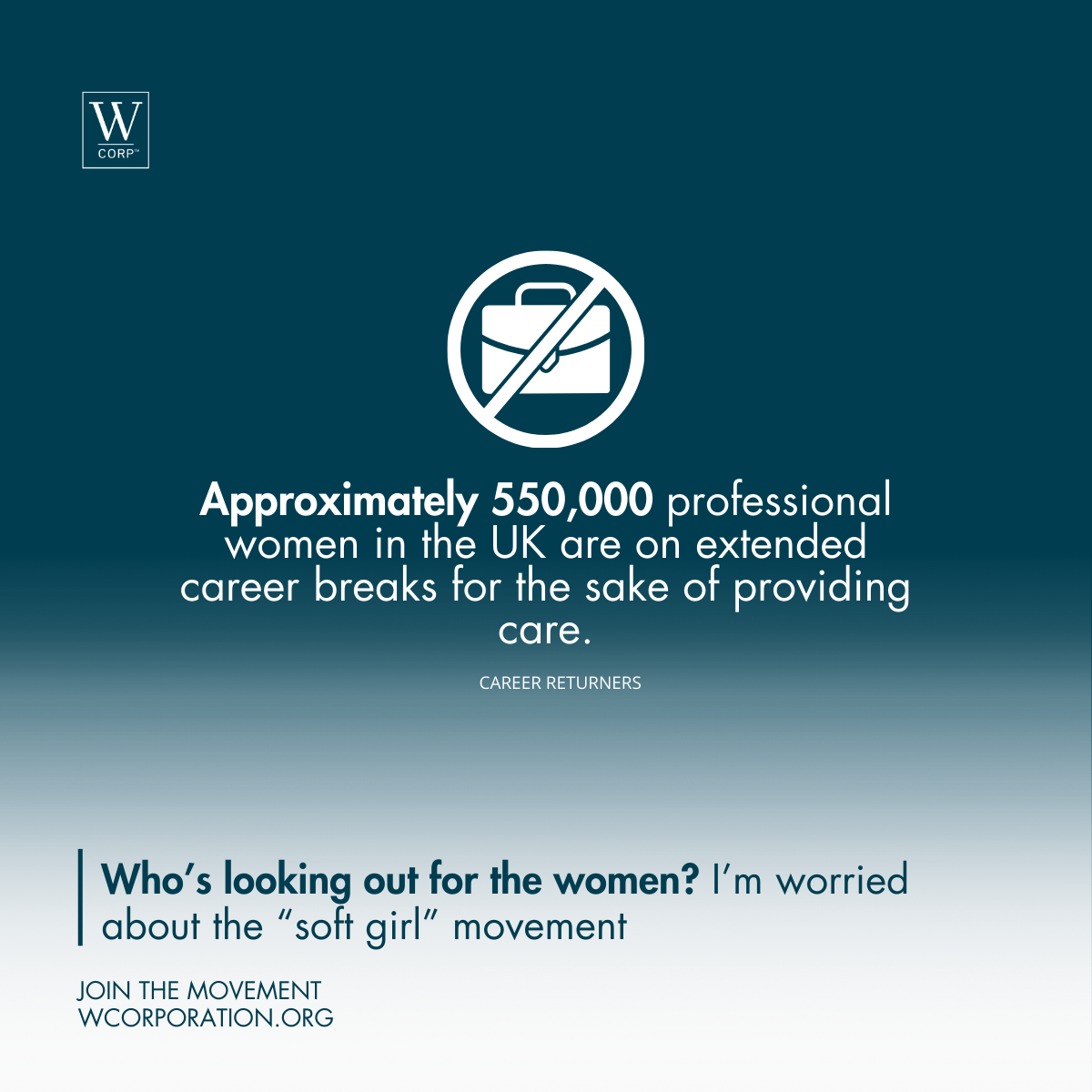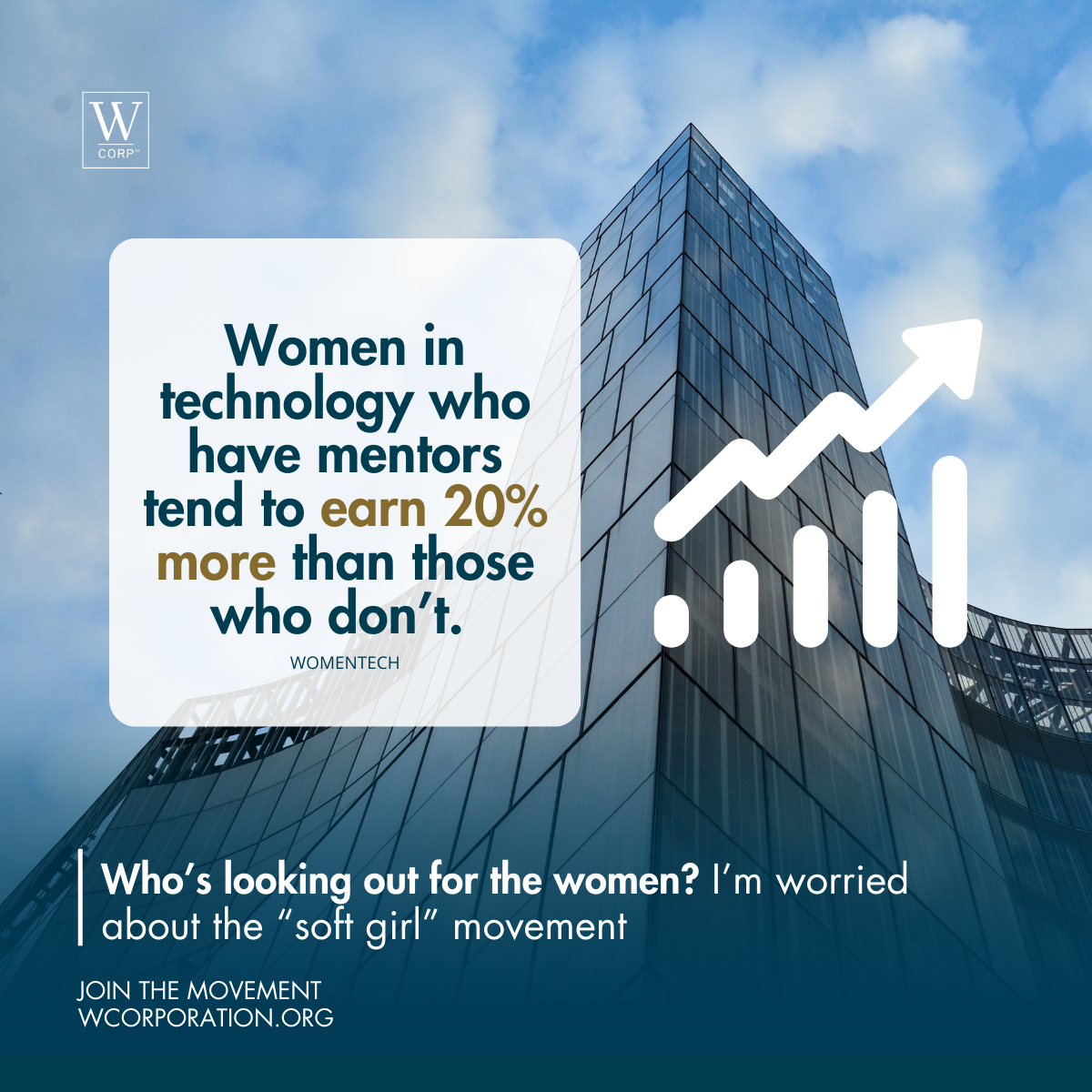Who’s looking out for the women? I’m worried about the “soft girl” movement
Feb 21, 2025
In Sweden, young women are electing not to work. Why?
“It’s about leaning away from this ‘girl boss’ ideal,” says one researcher about Sweden’s “soft girl” trend.
One self-titled “soft girl” says, “I think a lot of women feel burned out from their work… They’re always so stressed.”
I am a staunch believer that every woman can do as she wishes. I know that what I think about me, what I want for me, who I am for me… That’s the most important thing.
But at the same time, where’s the community? Where are the networks of women? Where are the role models?
I’m worried about where we’re heading.
The key facts:
“From a company's perspective, it’s devastating. Organisations need to prioritize retaining women in the workforce as they look toward their own recovery.”
- Dorri McWhorter, CPA, CEO and president of the YMCA of Metropolitan Chicago
- Economist Shoka Åhrman believes that the source of young women’s refusal to work is “mental health issues, burnouts”
- Nearly a quarter of working women in the UK struggle with managing workplace stress, and just 44% trust their employer to have effective burnout prevention plans in place.
- Approximately 550,000 professional women in the UK are on extended career breaks for the sake of providing care.
- Sweden has the highest proportion of working mothers, but, in heterosexual partnerships, these women still shoulder more domestic and childcare work than their male counterparts.

My take on the problem
“We really had no role models to follow.”
- Emmanuelle Bury-Lucas, UK head of BNP Paribas, discussing the lack of women in banking leadership
We as women THRIVE when we have mentorship.
Trends like the “soft girl” movement are an understandable response to the toxic work culture many women have witnessed in older generations. There’s a reason why 29% of women are leaving or considering leaving the workforce.
But the problem is that we’re not rallying together to help each other. Instead, we’re letting talented young minds opt out. It’s a mistake.
What they’re missing is mentorship.
Mentorship Works
There’s a ton of research out there proving that mentorship is essential.
- 59% of C-suite women reported having had a female mentor at some point in their careers.
- Women in technology who have mentors tend to earn 20% more than those who don’t.
- Women with mentors are more likely to negotiate for promotions and pay raises.
When I launched WCorp, I was expecting to feel isolated. I had no idea how good it would actually feel.
Because so many times when women start to lead things, we feel isolated. With WCorp, I rallied a global community of women behind me - and, for the first time ever leading something, I felt like I was part of a pack.

The WCorp Solution
Women are the driving force behind sustainable, equitable leadership - yet they remain underrepresented in boardrooms and executive suites around the world. At WCorp, we are on a mission to change that by empowering women to lead with confidence, resilience, and authenticity.
We’re providing real mentorship to enable women to thrive, at any stage of their careers. Our program pairs you with experienced women who know what it takes to succeed.
→ 1-on-1 consulting and mentorship from senior female executives
→ Networking opportunities with a global community of women leaders
→ Peer learning and leadership circles to exchange knowledge and grow together
The path to leadership isn’t walked alone.





